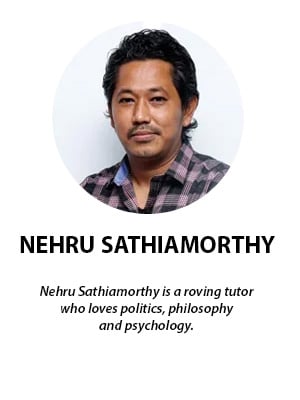FMT:
Of the Old Guard and Young Turks
Can our leadership keep abreast with, and react to, rapid changes around us?

The early years of my life were rather languid. The world I lived in was not much different from that of my father’s.
There were some differences between us. My father saw his first fixed-line telephone installed at home when he was nearing his 40s. I had my first mobile phone before I was 20.
I also had an email account and internet access in my teenage years, while my father has never really warmed to the internet, email or social media.
By and large, though, the times we lived in were similar enough to allow us an intuitive understanding of the dynamics at play in each other’s worlds.
The pace of change picked up considerably in 2007. That was the year the first iPhone was released.
It was not long after that I first heard the word “selfie”. The next thing I knew, words such as “app”, “tablet”, “viral” and “trending” became part of everyday vocabulary.
New phenomena began to emerge, like people sitting across a table being more engaged with their phones than with each other.
Then the 2020 pandemic happened, and after a two-year standstill, I suddenly woke up to a brave new world where artificial intelligence (AI) had begun to replace real persons even as humankind considered the possibility of living on a different planet altogether in the not-too-distant future.
Before I could even understand what bitcoin was, people were talking about non-fungible tokens (NFT).
In China, they invented an artificial sun. Meanwhile, America was losing its superpower status and the west its position as the leading light of civilisation.
Billion-dollar banks collapsed overnight, and people lost hundreds of billions of dollars due to one single opinion.
Last year, a student whose question I had difficulty answering made a couple of searches on YouTube, and within a minute, both he and I were watching step-by-step instructions on how to solve the problem.
This year, I did a “cut and paste” of an examination question into ChatGPT, and saw the problem solved in a split-second right before my eyes with an explanation of the solution thrown in.
That made me wonder: am I even necessary to the process anymore?
If I, now in my 40s, can be overwhelmed by changes occurring around me, I wonder how our 70- and 80-year-old leaders are handling it.
Prime Minister Anwar Ibrahim and Perikatan Nasional leader Muhyiddin Yassin are both 75 years old. Do they know what an NFT is? Have they used ChatGPT? Can they type on a keyboard with more than one finger from each hand?
Older leaders who cannot keep up with the present or face the future are likely to re-live issues from the past. That is probably all they are capable of doing.
Is it likely that we keep on harping on race and religion in our country because that is all our leaders know? Maybe they do so because they cannot handle the changes and challenges of the present and future.
On the other hand, if we had younger leaders, chances are they would more likely be talking about AI and ChatGPT instead of race and religion.
Being led by older leaders would be fine if life was good and nothing much had changed between generations. We could learn and apply the knowledge developed over several generations and be guided by their wisdom as we enjoy the abundant good fortune and happiness.
Unfortunately, times have changed drastically, and our country’s fortunes are dwindling rapidly.
Wisdom does not necessarily come with age. Many leaders just grow old and feeble. That is the cold, hard truth.
What we need is young leadership who can keep abreast with, and react to, the rapid changes all around us. We need leaders who are confident of their abilities, yet young enough to learn new things along the way.
We have young leaders on both sides of the divide. For instance, Anthony Loke and Khairy Jamaluddin, both still in their 40s, have impressed us recently. They, and others like them, show they can discard old ways to experiment with new ideas that might work.
If we empower our young leaders, they might be able to introduce the changes we need to address present and future challenges and reverse our dwindling fortunes.
We can keep faith with the old guard, or we can choose to take our chances with a young, new leadership capable of bringing us change for our country’s betterment.
Ultimately, it is we, the rakyat, who empower.
The choice is ours.
No comments:
Post a Comment